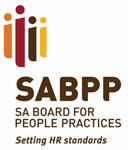Building on the new National HR Competency Model, the HR Professional and Quality Assurance body for South Africa, the SA Board for People Practices (SABPP), has followed in the footsteps of the top HR countries in the world by launching a project to develop the first set of HR standards for South Africa.
Similar projects are underway in the UK, Australia, and Canada, and the SABPP is benchmarking itself against leading nations and recognised professions, such as accountancy and engineering.
The purpose of the initiative, which is being driven by SABPP and its strategic partner HR Future magazine, is to lead and assist HR managers in generating integrated standards and metrics for the HR function, which are aligned to business strategy. Marius Meyer, CEO of SABPP, said that HR management system standards are needed to set a national benchmark of good practice and ensure a consistent way of managing HR functions and people in organisations. Likewise, he said, HR metrics refer to tangible measures that show the impact of HR on the bottom line of the business. Meyer pointed out that, without a national set of standards, all current efforts at benchmarking and benchmarks are meaningless, because there is no yardstick for comparisons.
Other professions like psychology, medicine, accounting and engineering have clear standards for professional practice, but the same cannot be said of HR. Accountants present their companies and clients with a consistent approach to the financial aspects of a company. They all conform to the International Financial Reporting Standards and this unified standards framework ensures consistency, quality and credibility. It also unites accounting professionals around a common purpose and focus for professional practice. For example, balance sheets and income statements are done in the same way, no matter the type of company or industry, and this consistent approach is prevalent throughout South Africa.
Inconsistencies in the standard of HR work
There are, however, many inconsistencies in the standard of HR work within organisations, between organisations, within and across sectors and nationally. These inconsistencies are based on a variance in standards at best, and the absence of standards at worst. This, said Meyer, results in poor people management practices at most organisations costing them dearly, despite some pockets of excellence at leading companies. However, this will now change with this national HR standards project.
The HR Standards Project commenced last year when senior HR role players around the country were consulted to identify what standards should be put in place. This exercise resulted in 13 national HR Standards emerging. These will form the building blocks of the SABPP HR System Standards Model (see figure below).
The SABPP HR System Standards Model encompasses the four phases of all good quality management practice, that is: prepare, implement, review, and improve. The three standards components are HR business alignment at the strategic level, the functional and cross-functional HR value chain, as well as measuring HR success. Within these three standards components, the 13 HR standard elements agreed by HR executives are as follows:
- Strategic HRM
- Talent management
- HR risk management
- Workforce planning
- Learning and dDevelopment
- Performance management
- Reward
- Wellness
- Employment relations management
- Organisation development
- HR service delivery
- HR technology
- Measuring HR success
The SABPP HR Standards Initiative has focused on three short-term phases:
- Phase 1 constituted the development of the standard elements - more than 100 senior HR practitioners generated the content of the first set of standards. This was a highly interactive process culminating in a set of draft standard elements.
- Phase 2 involves sharing the draft standards with the broader professional community and public for comments and inputs during the month of June. During July, these comments will, where appropriate, be integrated to improve the draft standards before they are published.
- Phase 3 will be the highlight of the project when the standards will be released at South Africa's first "National HR Standards Roll Out" on 21 and 21 August. It will be published into an HR standards guide.
SABPP's chairman, Siphiwe Moyo, said: "I am very excited about this major milestone in the history of HR in South Africa. It is my vision that we should all collaborate in setting and raising the standard of HR work, irrespective of our area of specialisation. We ask the HR professional community to support this ground-breaking initiative. Moreover, once the standards are available, we will all be implementers of them."
HR Future's executive editor, Alan Hosking, remarked: "The HR standards project will elevate HR to the level of other professions and provide a common platform for driving sound HR practice at all workplaces, irrespective of the type of industry and size of the organisation."
HR professionals who are interested in participating in the project should contact SABPP at az.oc.ppbas@eciffoevitucexe or go to www.sabpp.co.za.
































